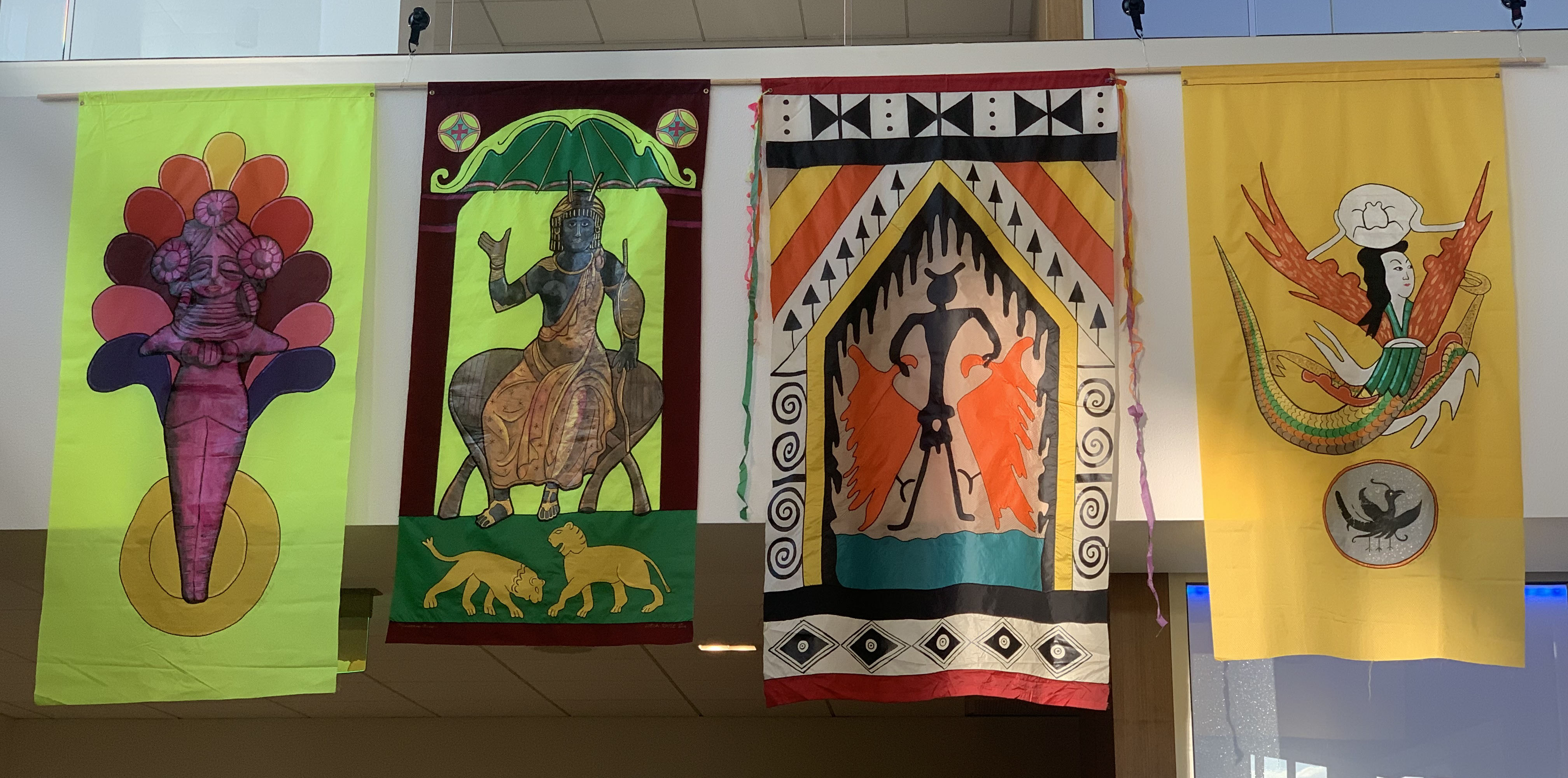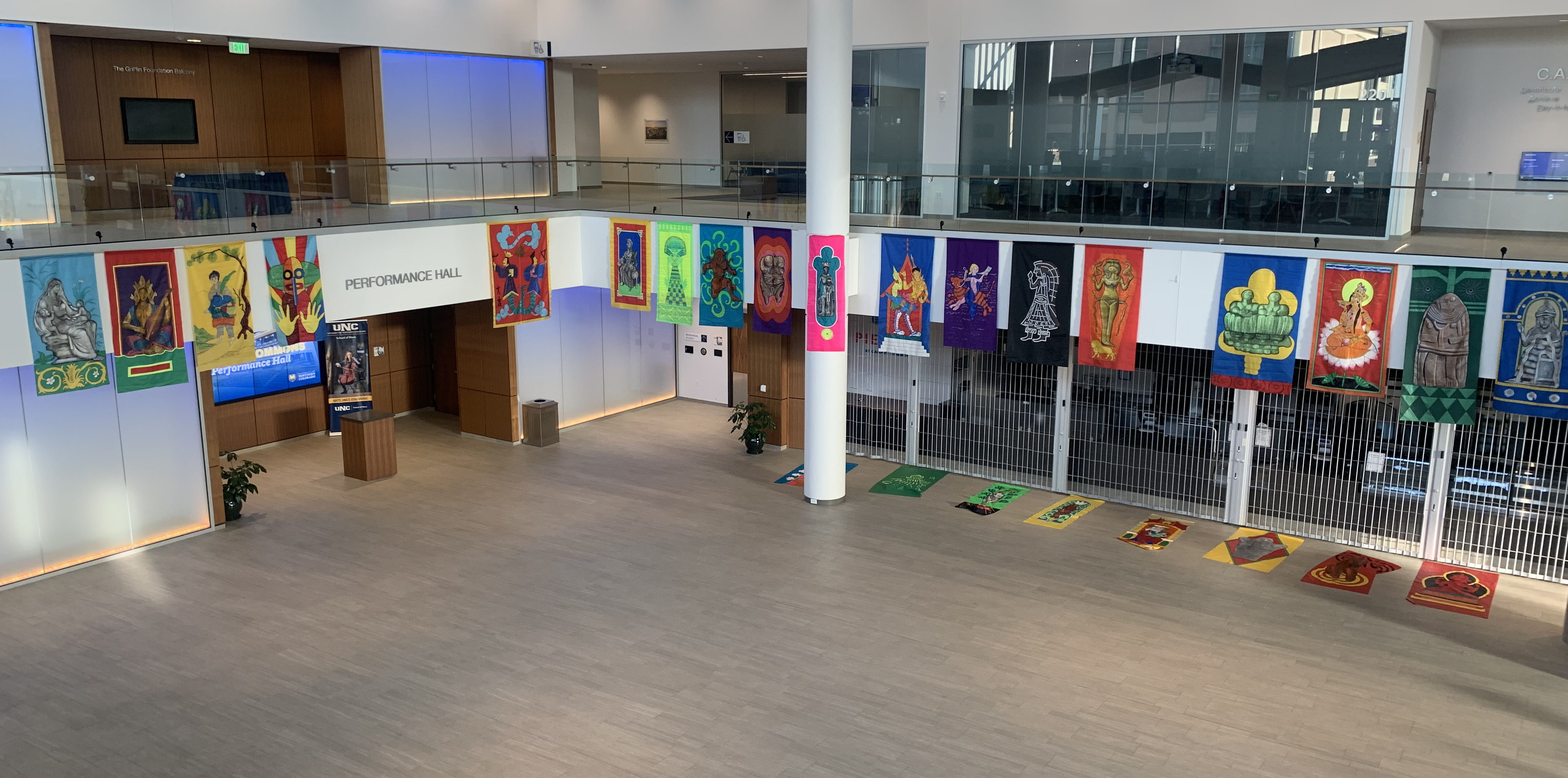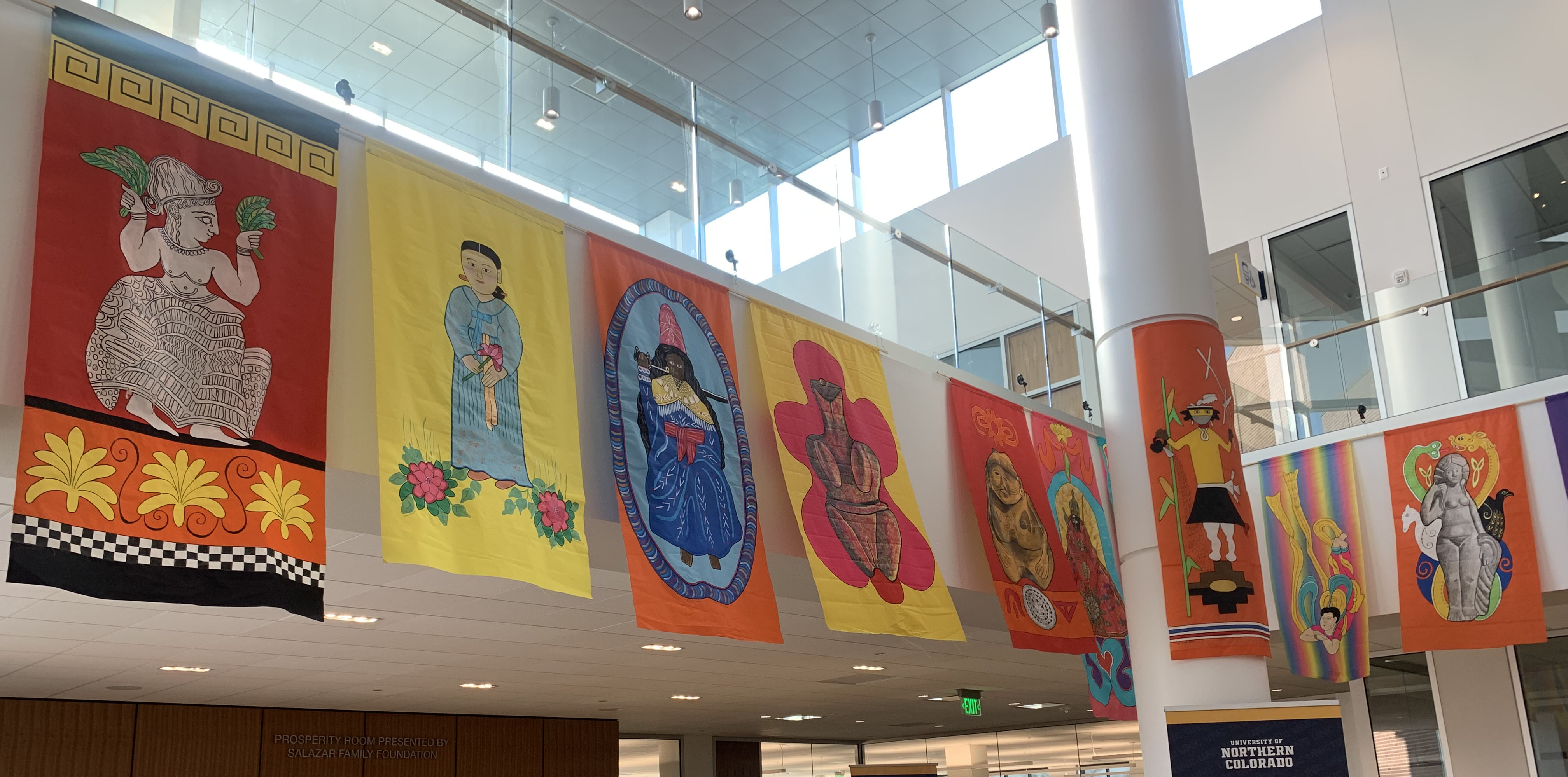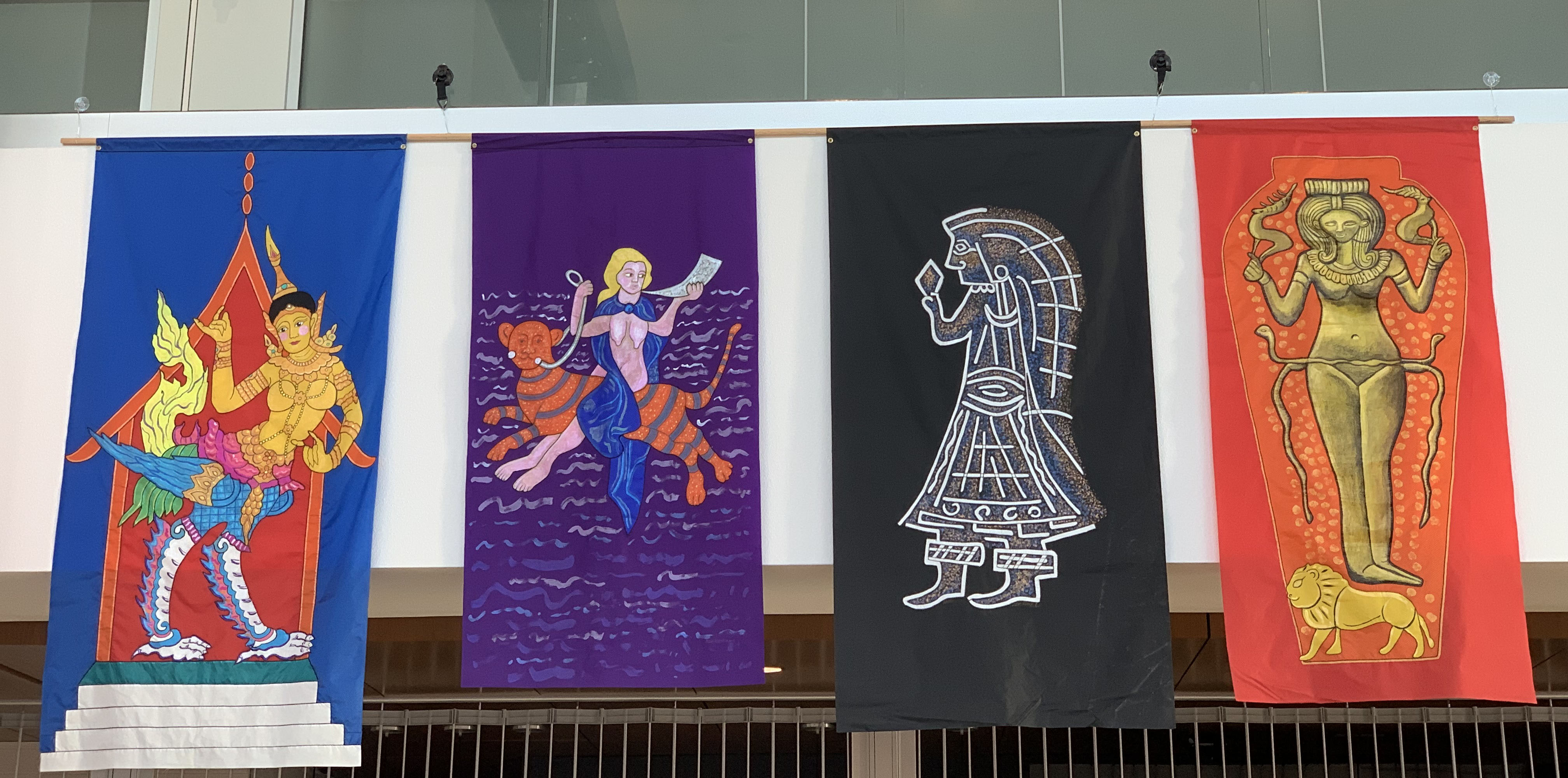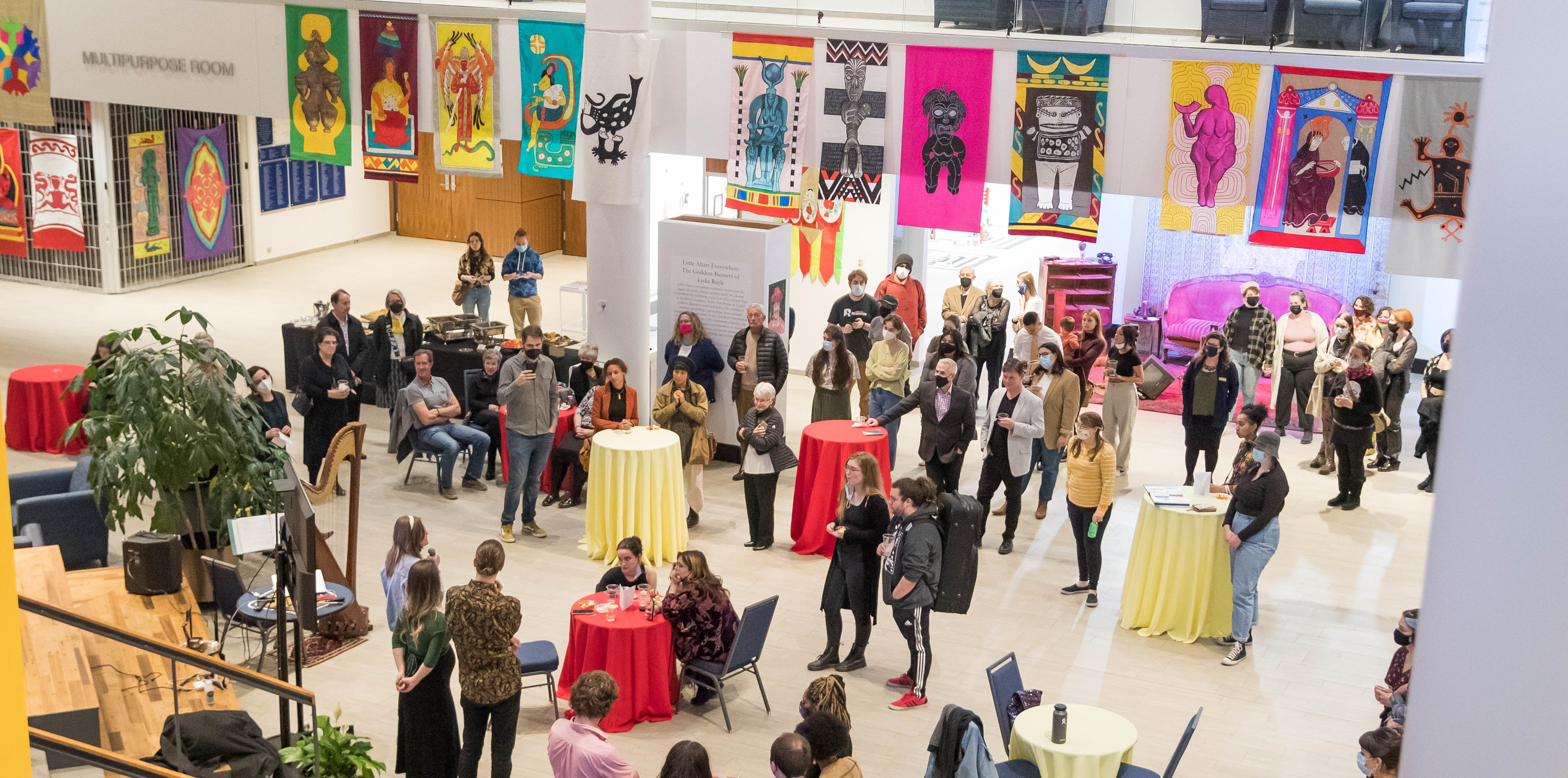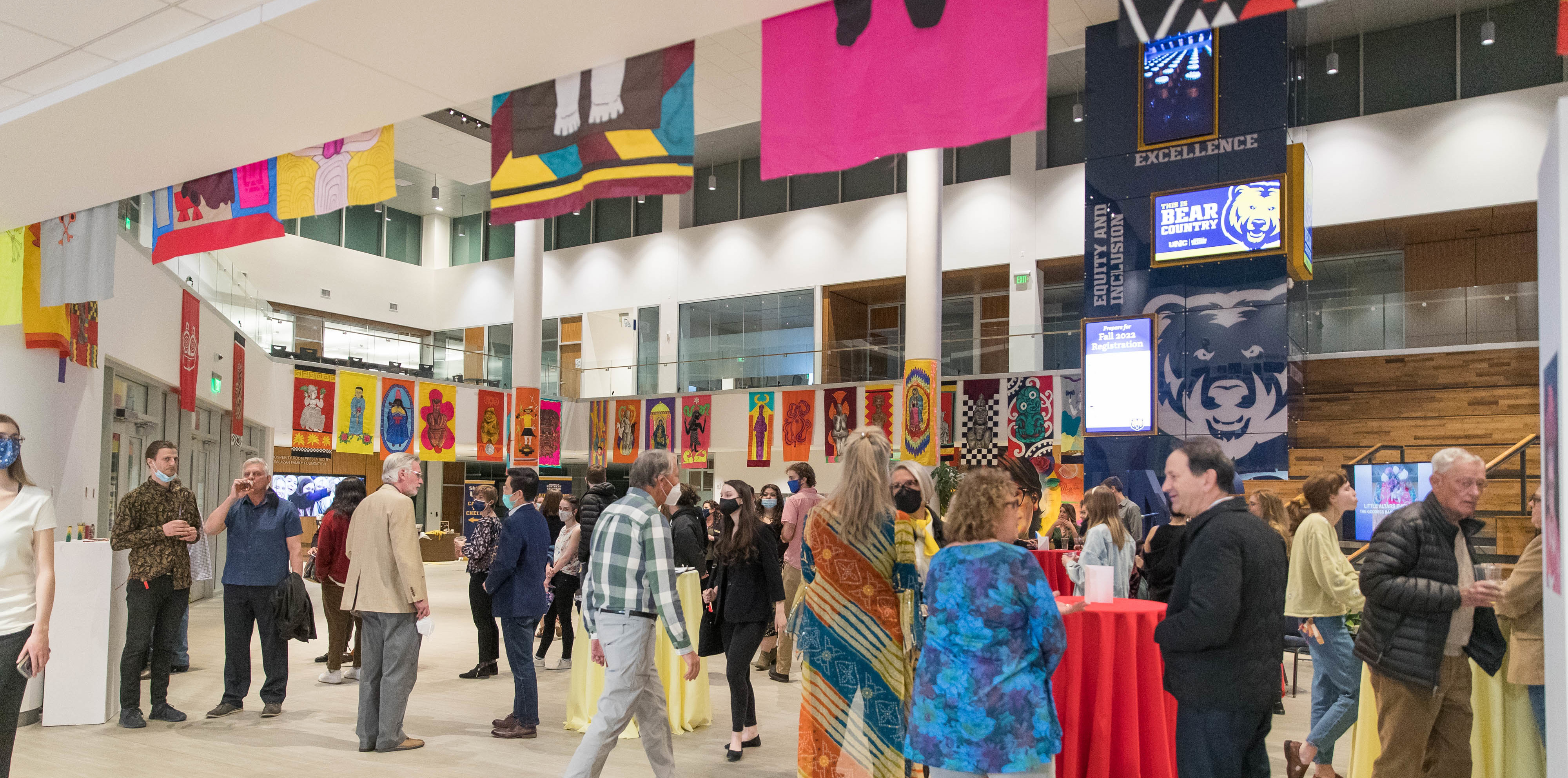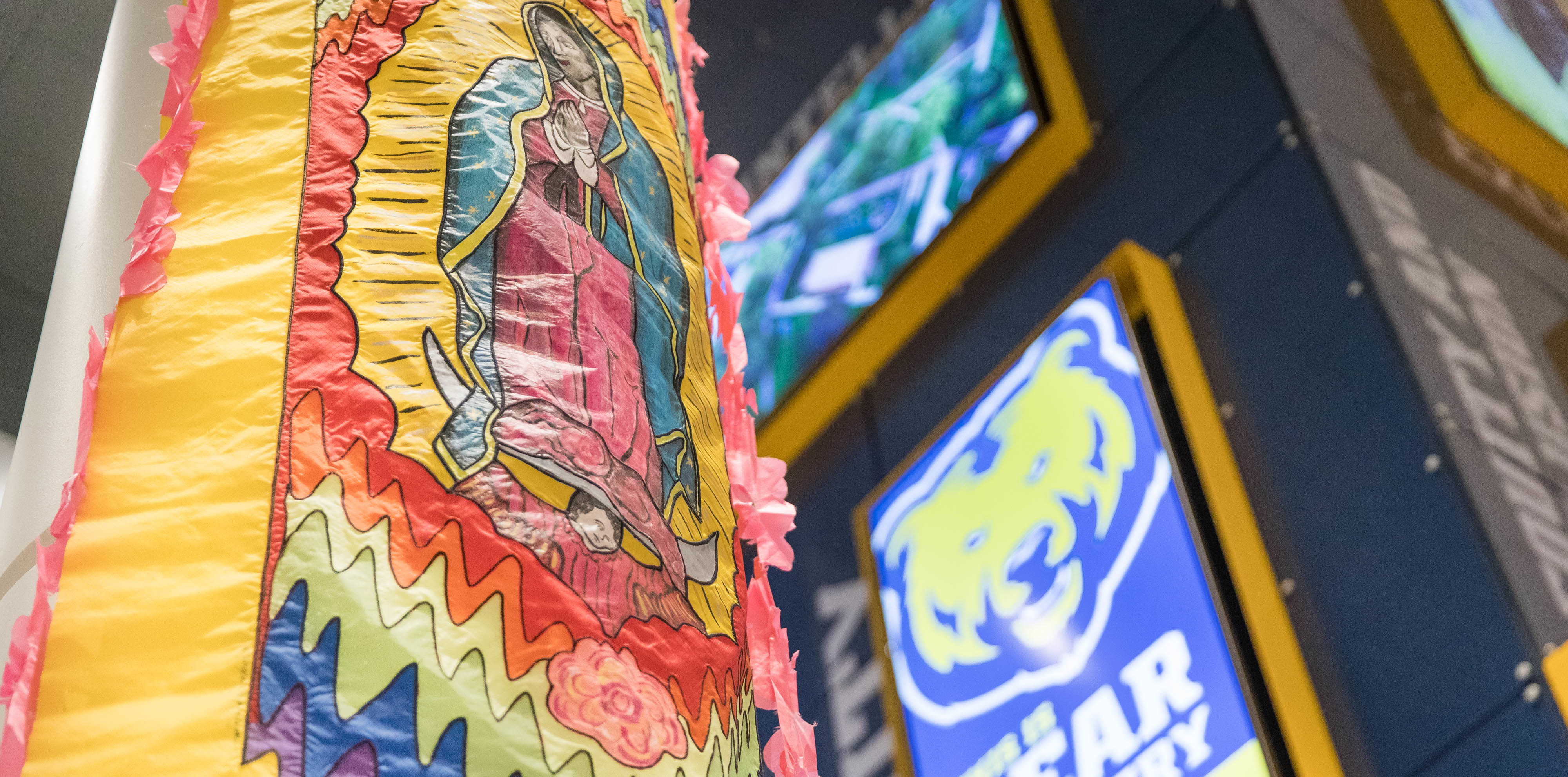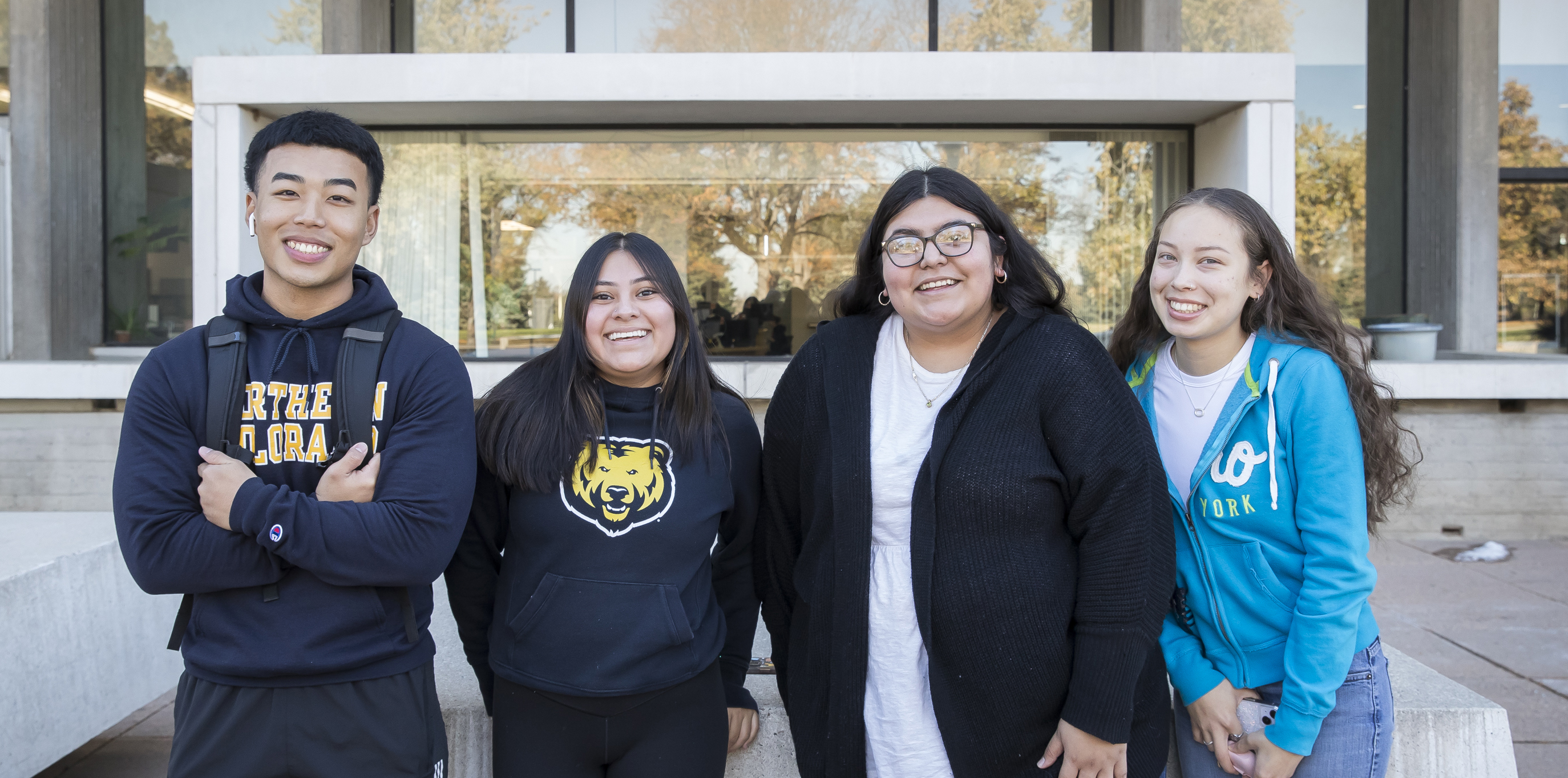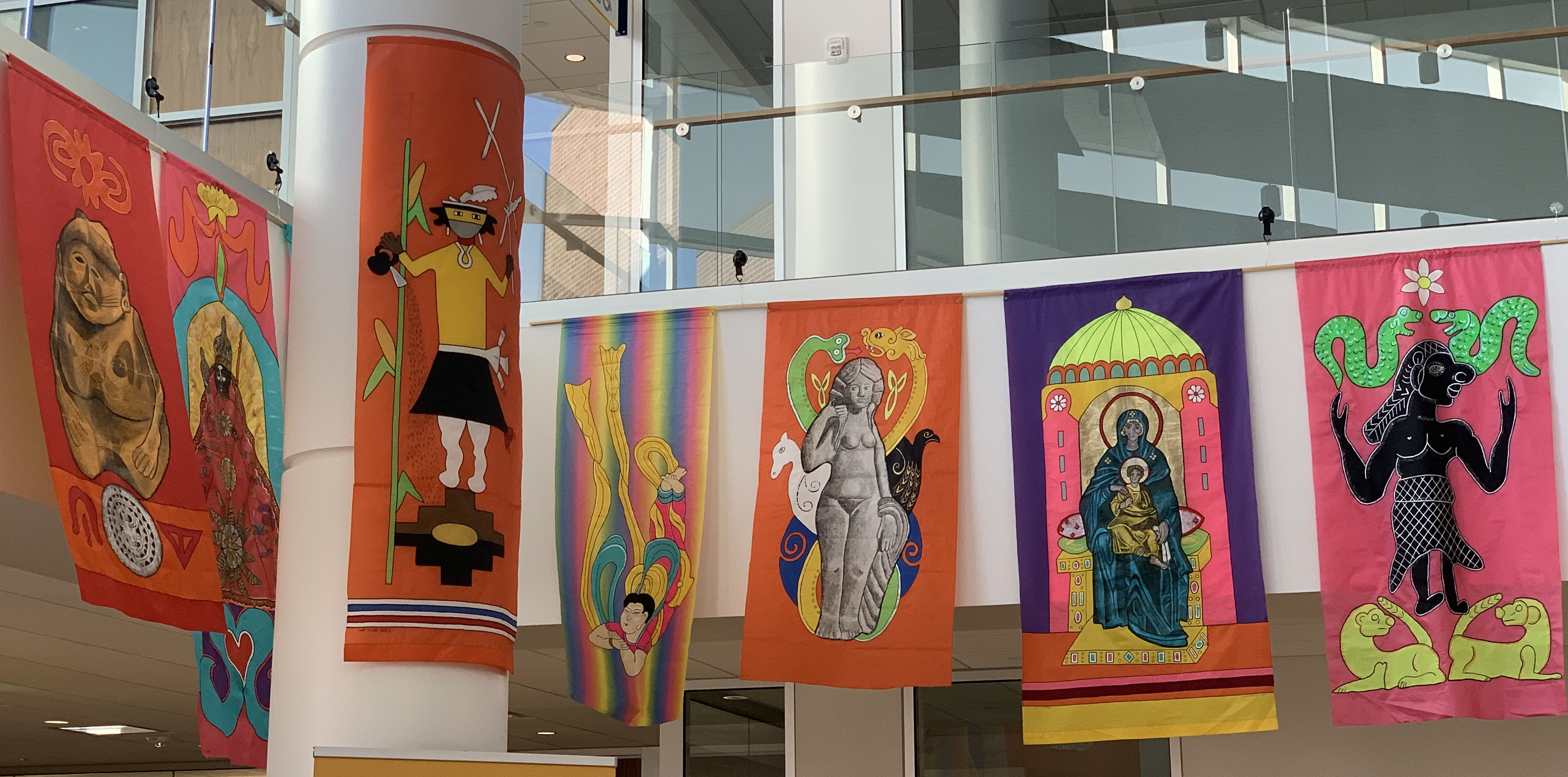
Not just a splash, but a wave of color is filling University of Northern Colorado’s Campus Commons. More than 90 bright prayer flags are flying off the walls in the main lobby. Each flag, vibrantly different from the other, is an image of a divine feminine or goddess created by a strong woman herself.
“When my aunt started to do printmaking there weren't many stories about women artists, never mind women’s images out there. So, she went on the search, traveling to find goddess images around the world,” Katie Hoffner said.

Lydia Ruyle
Hoffner had two major female influences in her life growing up. Her mom, who had just completed her medical degree and was starting her residency program when she was born, and her aunt, Lydia Ruyle ‘72. Ruyle earned her master’s in arts and taught women’s studies and art history as a scholar emerita in UNC’s Visual Arts program.
“I like to say I came out of my mother's womb and into my aunts' arms,” Hoffner said.
Before Hoffner was even five years old, under the wing of her aunt, she was exposed to the beauty of art. Back then, Ruyle was using her creative mind as a break from helping raise five young children.
“She would grab a canvas, put it on the kitchen counter where our little hands couldn’t reach and she started painting,” Hoffner said.
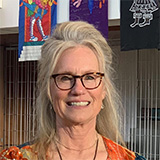
Lydia Ruyle's niece, Katie Hoffner
Decades later, Ruyle’s talent is now recognized internationally. Especially her recent work showcasing sacred female images from diverse cultures.
“She started doing research and traveling in the late ‘90s,” Hoffner said. “For instance, she would visit Mexico to learn about divine feminine images in situ, in the places where they were revered, and then bring them back to life in this art form, which is this ripstop nylon banner so that they could fly around the world together."
Ruyle created more than 300 banners before her death in 2016. She passed in her art studio, not far from where her pieces are currently being displayed. To honor her moving work, and to celebrate Women’s History Month, Katie Hoffner and UNC Galleries co-created the exhibition Little Altars Everywhere: The Goddess Banners of Lydia Ruyle.
“It makes me tear up because this was my aunt's goal,” Hoffner said. “For her art to fly at this scale back in the place where they were created. I think she’s dancing in the cosmos right now.”
The goddess images will be displayed through April 8. With every wall consumed with energetic banners that represent cultures from every corner, Hoffner hopes those who walk in and consume the art leave realizing women from around the world need to be celebrated.
“Some of these images are more than 50,000 years old. The women are all different shapes and sizes and represent different points of a woman’s life creating a very sacred space,” Hoffner said. “This is a visual feast of women.”
Ruyle's former student and current Professor of Art Education at UNC, Connie Stewart, PhD, feels that strength when she sees the banners.
"Her work is pretty magnificent," Stewart said.
It reminds her how lucky she is to have learned under Ruyle and call her a role model.
"When I first met Lydia Ruyle the role models in my life were living traditional lifestyles as wives and mothers, and being a wife and mother myself that was important to me also, but Lydia said feminism is having choices and that really influenced me. What a gift in my life."
This is the first time this many of Ruyle’s goddess depiction work, exploring mythology, spiritualism, women’s rights and storytelling, have been displayed in Greeley. They have also been exhibited in the National Museum of Women in the Arts, the United Nations World Conference on Women and throughout the world, including England, France, Germany, Italy, Korea, Nepal, Peru and Turkey.
- written by Sydney Kern
More Stories
-
Governor Polis Reappoints Two to UNC’s Board of Trustees
Este artículo no está en español.
-
State Farm Invests in Career Readiness Initiatives for UNC Students
Este artículo no está en español.
-
Commentary: The Importance of Investing in First-Generation Students
Este artículo no está en español.
-
Supporting First-Generation College Students to Become Next-Generation Leaders
Este artículo no está en español.

